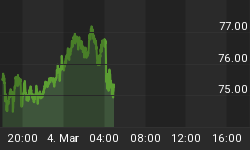With the death toll from the coronavirus now surpassing 2,230, and nearly 900 new cases of infection in China as of yesterday, businesses are reeling, and one of the worst-hit aside from the global tourism industry may end up being the auto industry.
On Thursday, Reuters reported a 92 percent plunge (based on annual numbers) of passenger car retail sales in China in the first half of February.
Based on the first 16 days of the month, China had registered 4,909 passenger vehicle sales, compared to nearly 60,000 in the same period last year, based on Chinese official data.
It’s hard to sell cars when dealerships are largely closed in Hubei province, the origin of the viral outbreak and China’s industrial heartland, and many factories have been shut down entirely. On Friday, plants were ordered to delay restarts in certain areas near coronavirus outbreaks.
Beyond that, the problems compound, with major shortages and supply-chain disruptions for plants that are attempting to restart production. Nor is it just in Hubei, either. The disruptions have had a major ripple effect.
Toyota is gradually restarting production at all of its vehicle assembly plants in China. Partial production at some plants re-started this week, and by next week all plants should have resumed at least partial operations. Related: BHP Takes The Crown As World’s Top Copper Miner
Nissan’s plants in four areas will remain closed, with no date set for reopening at this time. Honda has so far said its operations in Wuhan (where the outbreak started) will remain shuttered until March 11th.
Daimler has relaunched in Beijing, but warns about major supply chain issues, while GM and Fiat Chrysler have also resumed operations.
Even if the coronavirus is contained by April, the Chinese auto market is set to see a 10 percent loss of sales for H1 2020, China’s Association of Automobile Manufacturers (CAAM) told Reuters last week.
Ford and GM, in particular, were already faring poorly in China prior to the coronavirus outbreak.
GM’s 2019 sales fell over 15 percent, while Ford and its China JVs shed over 26 percent in sales last year, with a $771-million operating loss in China.
East Lansing, Michigan-based Anderson Economic Group told the Detroit Free Press that GM, Volkswagen, Honda, Tesla and Hyundai-Kia were the automakers expected to be most affected by the coronavirus outbreak in China. But the biggest impact was expected to be on GM, which sells more cars in China than it does in the United States. Related: Iran's Space Program Hits Another Snag
"GM's workforce production and earnings in China will be negatively affected," Anderson Economic Group CEO Patrick Anderson told the Free Press. "GM is trying hard under difficult circumstances. However, even GM cannot avoid entirely the fallout from this epidemic."
The only upside for the industry in this story is for the EV sector, considering the potential for Beijing to extend subsidies for purchases beyond 2020 in order to breathe new life into sales, according to Bloomberg, citing “people familiar with the matter”. Talks to that end are still only preliminary.
By Michael Kern for Oilprice.com
More Top Reads From Safehaven.com:
















